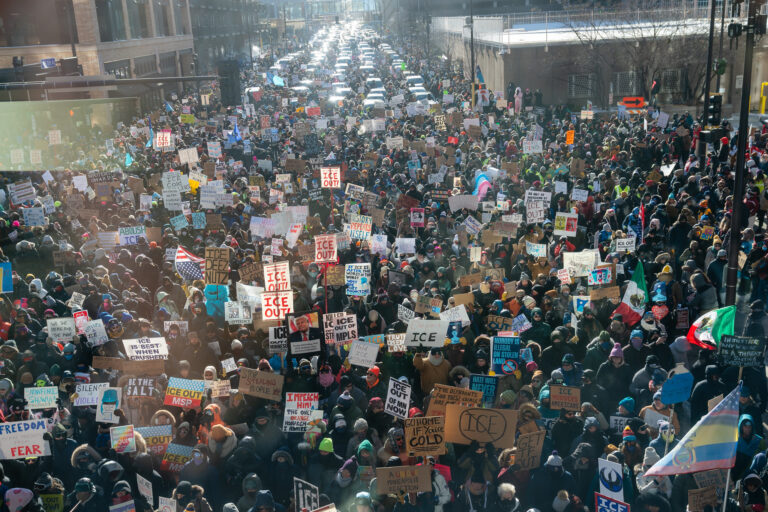
Andrew Strom is a union lawyer based in New York City. He is also an adjunct professor at Brooklyn Law School.
Among the scariest images of Hurricane Irma were two collapsed cranes at construction sites in Miami. If you’re wondering why Miami doesn’t have stricter laws regulating construction cranes, the answer is that when Miami enacted a law requiring cranes to withstand 140 mile per hour winds, the Associated Builders and Contractors, an association of non-union construction companies sued and stopped the law from going into effect.
Most cranes in the United States are only built to withstand winds of 93 miles per hour. But, in 2008, Miami-Dade County wisely realized that in a hurricane-prone region, it would make sense to impose stricter standards. The County decided that tower cranes should withstand wind loads of 140 miles per hour. Instead of accepting the wind load standard, the Associated Builders and Contractors sued, arguing that the federal Occupational Safety and Health Act preempted the local ordinance. The County argued that even if local workplace health and safety laws are ordinarily preempted, these standards should not be because “failing cranes kill people, workers and non-workers alike.” The County argued that particularly during hurricanes, the new standard was directed at public safety, not occupational safety.
But, the three judge panel on the Eleventh Circuit Court of Appeals rejected the County’s argument. The judges pointed out that construction sites are typically closed to the public, and “the County failed to identify a single incident in which a crane accident injured a member of the general public during a hurricane.” In other words, instead of taking precautionary measures, the County should have waited for someone to die, and then, perhaps the regulation would pass muster. I’d like to think the Eleventh Circuit judges are having second thoughts about that opinion.









Daily News & Commentary
Start your day with our roundup of the latest labor developments. See all
February 26
Workplace AI regulations proposed in Michigan; en banc D.C. Circuit hears oral argument in CFPB case; white police officers sue Philadelphia over DEI policy.
February 25
OSHA workplace inspections significantly drop in 2025; the Court denies a petition for certiorari to review a Minnesota law banning mandatory anti-union meetings at work; and the Court declines two petitions to determine whether Air Force service members should receive backpay as a result of religious challenges to the now-revoked COVID-19 vaccine mandate.
February 24
In today’s news and commentary, the NLRB uses the Obama-era Browning-Ferris standard, a fired National Park ranger sues the Department of Interior and the National Park Service, the NLRB closes out Amazon’s labor dispute on Staten Island, and OIRA signals changes to the Biden-era independent contractor rule. The NLRB ruled that Browning-Ferris Industries jointly employed […]
February 23
In today’s news and commentary, the Trump administration proposes a rule limiting employment authorization for asylum seekers and Matt Bruenig introduces a new LLM tool analyzing employer rules under Stericycle. Law360 reports that the Trump administration proposed a rule on Friday that would change the employment authorization process for asylum seekers. Under the proposed rule, […]
February 22
A petition for certiorari in Bivens v. Zep, New York nurses end their historic six-week-strike, and Professor Block argues for just cause protections in New York City.
February 20
An analysis of the Board's decisions since regaining a quorum; 5th Circuit dissent criticizes Wright Line, Thryv.